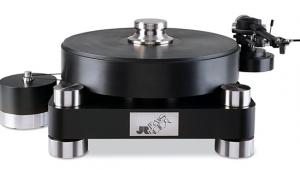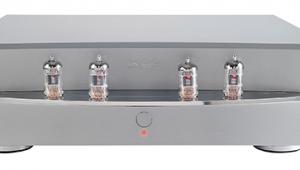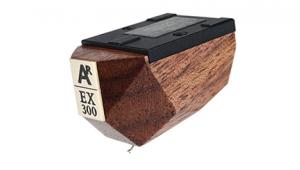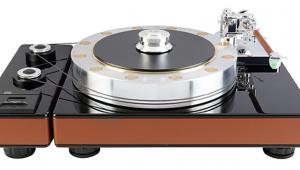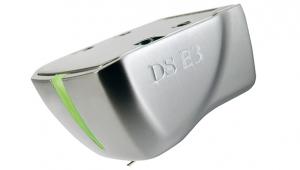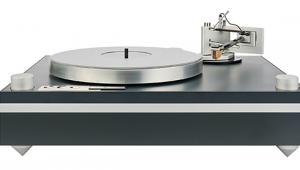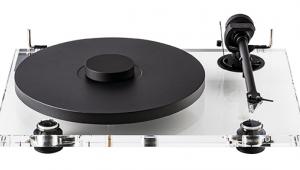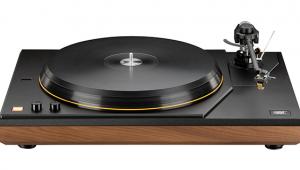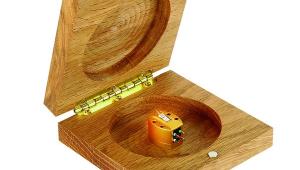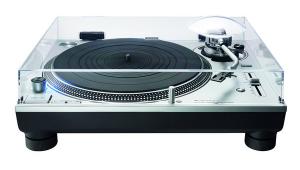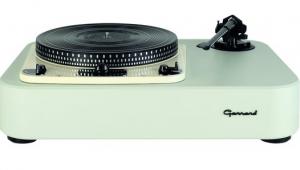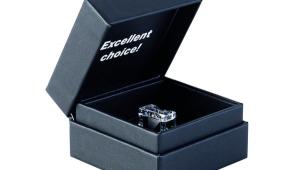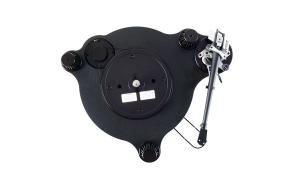Pro-Ject Classic Evo Turntable
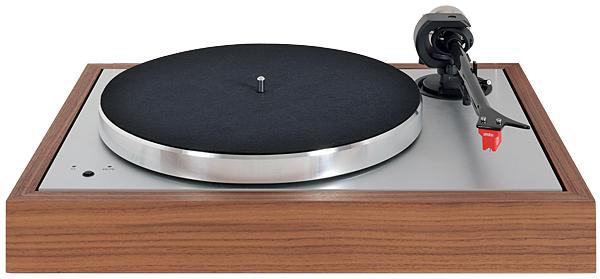
 Keeping up with progress in Pro-Ject's Mistelbach headquarters is enough to make anyone's head spin. The latest deck to be updated is the Classic, four years after launch
Keeping up with progress in Pro-Ject's Mistelbach headquarters is enough to make anyone's head spin. The latest deck to be updated is the Classic, four years after launch
As the undisputed juggernaut of the vinyl world, Pro-Ject's progress has been dizzying, particularly in recent years, and the brand now even has its own record label. So there's clearly a lot to celebrate as the company reaches its 30th anniversary this year. It all started with the Pro-Ject 1 – a cheap, no-nonsense, 'plug 'n play' record player launched when the received wisdom held that vinyl as a format was dying. Since then, the company has produced a huge array of different models – broadening its design strategy to ensure it can offer a turntable for every taste and budget.
Whereas rivals, including Rega, might painstakingly apply one single philosophical approach across all its turntables, Pro-Ject has shown itself to be far less doctrinaire. The Classic [HFN Aug '16] for example, was a nod to the designs of the '70s – in styling if not entirely in construction. It channelled the mid-price, suspended-chassis belt-drives of that era such as the Thorens TD160BC and Ariston RD 40, aiming to offer a sound that was substantially better than entry-level products but without breaking the bank.
Poetic Licence
You might say it cheated a bit, because that fussy sprung suspension of the oldies was done away with, and in its place Pro-Ject fitted six Thermo Plastic Elastomer (TPE) balls between the wood plinth and main chassis plate. As we shall see, the new Classic Evo continues with this approach, but adds some tweaks along the way...
The first upgrade is to the optional pick-up cartridge. As per its predecessor, the Evo can be purchased as a package with a bundled cartridge already fitted. The original Classic came with an Ortofon 2M Silver MM for £799, but the new Evo comes with the superior and considerably more expensive Quintet Red MC fitted for £1250. Of course, the Classic Evo is also available without a cartridge for £1050.
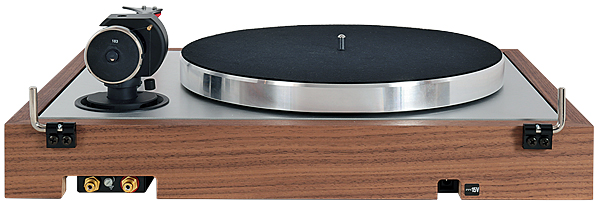 <>
With its attractive real wood plinth – available in a choice of walnut and eucalyptus – and brushed metal top plate, this deck feels very well made for the money. It has a look and feel that many more traditional vinyl fans will find attractive, strongly resembling the classic designs that dominated the 1960s-70s turntable market before more minimalist and/or skeletal designs emerged in the '80s. In use the Classic Evo feels fairly slick, and is relatively quiet when you tap its plinth while playing – showing a decent degree of vibration damping.
<>
With its attractive real wood plinth – available in a choice of walnut and eucalyptus – and brushed metal top plate, this deck feels very well made for the money. It has a look and feel that many more traditional vinyl fans will find attractive, strongly resembling the classic designs that dominated the 1960s-70s turntable market before more minimalist and/or skeletal designs emerged in the '80s. In use the Classic Evo feels fairly slick, and is relatively quiet when you tap its plinth while playing – showing a decent degree of vibration damping.
In addition to the new cartridge option, there are two more key tweaks to the design of the original Classic that make up this new Evo version. Rather than the original's plastic sub-platter, the new deck uses a substantial metal affair that's said to be diamond-cut from the same aluminium alloy as the main platter. The latter, a hefty 300mm diameter affair, sits atop and is lined with a thick ring of TPE damping on the underside. Together, the inner and outer platter assembly is necessarily heavier than before, and seems impressively inert.
The inner platter sits on a steel/bronze/Teflon main bearing, apparently inspired by that fitted to the Vienna Philharmonic Recordplayer [HFN Jan '18], and is turned by an electronically-governed AC motor. The two-button speed selection works logically and gives easy switching between 33.33 and 45rpm, with 78rpm also supported.
Strong Arm Tactics
The Evo's second upgrade concerns Pro-Ject's latest 9in tonearm, which retains the carbon-fibre wrapped aluminium one-piece tube of the original Classic, but gets a larger, beefed-up bearing housing. The counterweight is finished in bright nickel and, again, damped with TPE, and fits – slightly less tightly than I expected, it should be said – to the rear of the armtube. This arm has a quoted effective length of 230mm and effective mass of 13.5g, and offers both azimuth and height adjustment in addition to an equally 'classic' thread-and-weight bias correction. Its magnetic armrest is a nice idea, but the review deck's rest assembly was slightly wobbly, rather spoiling the slickness of the system.
At 462x131x351mm (whd) the plinth is a little larger than average, the deck weighing a total of 10.5kg. A clear dustcover is supplied that mates up to friction hinges fitted directly to the plinth, though I found that as with most turntables, the sound was better with it removed. Three TPE-damped alloy feet screw into the underside of the deck and offer height adjustment.
The package comes complete with the company's Connect-IT E phono RCA cables, which hook up easily at the back. The Classic Evo took me about 20 minutes to unpack and set up, but do remember to remove the three transit screws from the top plate before fitting the platter…
![]() School's Out
School's Out
These 'old school' looks may hint at the sound of Pro-Ject's Classic Evo, but they don't quite tell the whole truth. Yes, this record deck is a little less tight and focused-sounding than modern market rivals from Rega and Technics, for example, yet it certainly doesn't deliver the warm sonic 'comfort blanket' you got from classic designs from Thorens and Ariston back in the day. It really seems that the Classic Evo has been 'voiced' as a halfway house between old and new, giving a pleasantly sweet rendition of the records its spins, without sounding obviously coloured.


